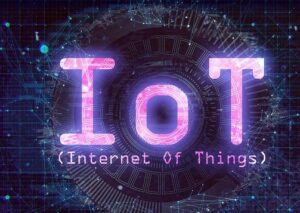AI-assisted services are more efficient. By using AI to process information, companies can decrease the amount of time needed to make important decisions and increase the speed at which they respond to customer requests. AI is also able to learn from past experiences and make better decisions in the future, giving companies a competitive advantage over those who rely on human decision makers.
Another benefit of AI-assisted services is that they are more accurate than those made by humans alone because algorithms provide consistent results even when presented with similar data sets (such as “How many dollars should I charge for this product?”). This consistency helps customers trust your products or services, leading them to be more willing clients than if you used only human decision makers.
The Internet of Things
 The Internet of Things (IoT) is a network of physical devices—from home appliances to medical devices, cars and trucks to city infrastructure—that are connected to the internet. The IoT allows these objects to collect and exchange data with each other and with humans.
The Internet of Things (IoT) is a network of physical devices—from home appliances to medical devices, cars and trucks to city infrastructure—that are connected to the internet. The IoT allows these objects to collect and exchange data with each other and with humans.
The IoT can be thought of as a large enterprise system that uses sensors, actuators, databases, web services and algorithms to monitor things like machinery or transportation networks in real time. This information can then be used by people who need it: doctors monitoring patients’ heart rates while they sleep; farmers who want real-time updates on their crops; mechanics maintaining fleet vehicles; even building managers checking the thermostat settings in every room on campus.
AI will help you find everything you need
If AI helps companies connect with consumers, it also helps individuals connect with brands. Your interests are often a matter of public record: you’ve told your friends about them on social media; you’ve indicated them in your search history; and some companies have even been known to research your DNA. This means that AI can use these data points to suggest products and services that are likely to appeal to you—or at least ones that will be useful for whatever task is at hand. As more people use AI, this becomes easier for businesses because they can make better recommendations based on aggregated information from many different sources (and often without infringing on privacy laws).

AI will improve the internet
When it comes to AI and the internet, we’re still in the early days. But there are already some very tangible benefits for all of us that have been unlocked by this technology.
AI is helping us make better decisions by giving us access to more data, so we can make better products and services. It’s helping us create more delightful experiences for our customers through faster prototyping and development processes (i.e., being able to test new ideas more quickly). And while there are still challenges ahead of us—like ensuring privacy while using machine learning models—the potential is vast: AI will help businesses become more efficient at doing what they do best without sacrificing quality or safety; it’ll help people live healthier lives; it’ll make scientific research happen faster—and probably a lot cheaper as well!
Conclusion
I would like to thank you for reading this blog post and hope that it has given you a better understanding of how AI will affect the internet. As I continue to explore its capabilities, I am optimistic about what it can do for our industry. I hope that the information shared here will help you use these emerging tools more effectively today—and tomorrow!



